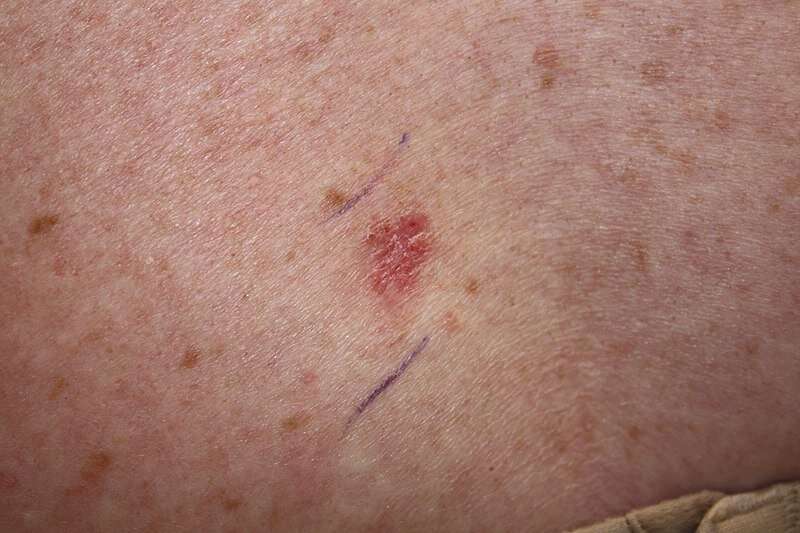This article has been reviewed according to Science X's editorial process and policies. Editors have highlighted the following attributes while ensuring the content's credibility:
fact-checked
peer-reviewed publication
trusted source
proofread
Curettage and cryosurgery found to be effective for the most common skin cancer

The number of cases of skin cancer is continuing to rise sharply, in Sweden and internationally, involving high costs for a health care economy that is already under severe strain in many places. To further evaluate and refine effective and safe treatment methods is therefore of the utmost importance.
Internationally, surgery is mainly recommended for the most common form of skin cancer, basal cell carcinoma. However, this method is time- and resource-intensive.
The faster method of curettage and cryosurgery has been used internationally since the 1960s, but has been questioned due to a lack of clearly defined treatment protocols. The effects have therefore also varied widely.
Excellent treatment results
The current study, published in the Journal of the American Academy of Dermatology, applied and analyzed two different variants of the method. A total of 202 tumors were treated in 116 patients, 40 of whom were women. The median age for the group as a whole was 72.
The method involves first scraping the lesion with an instrument called a curette, followed by freezing, cryosurgery, using liquid nitrogen in a hand-held spray gun. Half the tumors were treated with one session of freezing, and the other half with two sessions of freezing. The procedures are performed using local anesthetic, and take less than five minutes.
This treatment produces a wound that takes a few weeks to heal and leaves a scar, but the method was well tolerated by patients. The results at one-year follow-up were also good: Of 202 tumors, only one recurred.
The study was led by Eva Backman, a doctoral student in dermatology and venereology at the University of Gothenburg's Sahlgrenska Academy, and a consultant in dermatovenerology at Sahlgrenska University Hospital.
"Our research clearly shows that, when carried out properly, this method is both safe and cost-effective compared to other commonly used and more resource-intensive methods," she says. "We therefore hope that the results will be disseminated throughout Sweden, but also internationally."
The importance of simplicity as challenges grow
Basal cell carcinoma is mainly caused by the harmful effects of prolonged sun exposure on the skin. It is therefore uncommon before the age of 40, and its incidence increases at older ages. More than 60,000 new cases are reported each year in Sweden alone.
Basal cell carcinomas rarely metastasize but may grow locally and can cause wounds that do not heal. Some tumors exhibit an infiltrative growth pattern and these tumors are more often hard to delineate. In such cases, surgery, including Mohs surgery, is the most suitable treatment option. Other types are superficial and elevated (nodular), as were the tumors in the study.
Backman states, "Health care faces significant challenges, with a growing population that is also living longer. It feels gratifying being able to demonstrate that old treatment methods still plays a pivotal role in the treatment armamentarium for our most common type of cancer."
More information: Eva Backman et al, Curettage plus one or two cycles of cryosurgery for basal cell carcinoma with clinically nodular features—a prospective randomized controlled trial, Journal of the American Academy of Dermatology (2023). DOI: 10.1016/j.jaad.2023.04.070. www.jaad.org/article/S0190-962 … (23)01021-6/fulltext




















